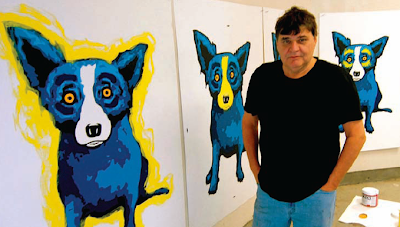Here's a roundup of several
"Smaller Is Better" (SIB) projects that were submitted after our
recent post on the subject:
• Darla Abigt from the
Western Center for Archaelogy & Paleontology sent info about a "SIB" exhibit called
“Art meets Science.” It was inspired by the KEVA planks that are used in the Western Center's education programs.
It's an interactive exhibit that allows visitors to employ their imaginations and creativity by building with a simple wooden block. In addition, themed competitions and events have inspired the community to work together and create truly unique and beautiful designs in the exhibit gallery --- all while learning the rules of gravity, balance and engineering. Take a look at their
Photobucket Album or the photo above for examples of visitor creations.
• For another "Smaller Is Better" project, Alex Hayes wrote about how the "family business" (including his father David Hayes and uncle John Hayes) worked with the city of White Plains and local developers to install 62 Large sculptures around town. You can see an example below, or check out
David Hayes' website to see more examples of the White Plains project, and other installations done throughout the country with smaller cultural institutions.
• Lastly,
Michael Nugent wrote about his work with the
Acadiana Center for the Arts (AcA.)
Here's what Michael had to say:
"I am an artist from Lafayette, Louisiana and have been working on contract for a local museum, the
Acadiana Center for the Arts (AcA), as an Exhibition Preparator. It's a great and inspiring place to visit as well as work (although I am a bit partial). The AcA has had some impressive exhibitions, even somewhat controversial and progressive for the South. A performing arts theater is currently being added which will double the square footage of the facilities - in all about 50,000 sq. ft.
Artist Heidi Cody came through the main gallery with her collection entitled
"Suggested Retail Value," and transformed the space into a wonderland of abstracted modern advertising. It was the most challenging installation we've seen at the AcA.
Probably the most famous artist from Louisiana,
George Rodrigue, showed a retrospective of his work at the AcA. It was overwhelming to be surrounded by the $30 million worth of artwork - installing it was quite an experience as well.
A recent exhibit,
the Southern Open, displayed work by artists from Texas, Louisiana, Mississippi, Alabama, and Florida. Around 400 artists submitted nearly 1000 works of art this year. 59 artists and 72 pieces of art were selected. Eleanor Heartney was the juror for the exhibition.
The previous Head Curator,
Rose Courville, was responsible for these and many other great exhibits. She recently moved to Maryland with her husband, and I will miss working with her."
Great work all around! If you would like to share information about an exhibition doing more with less, please
contact me so I can let ExhibiTricks readers know about your projects as well.
Don't miss out on any ExhibiTricks posts! It's easy to get updates via email or your favorite news reader. Just click the "Free Updates" link on the right side of the blog.
P.S. If you receive ExhibiTricks via email you will need to click
HERE to go to the main ExhibiTricks page to make comments or view multimedia features (like movies!)









